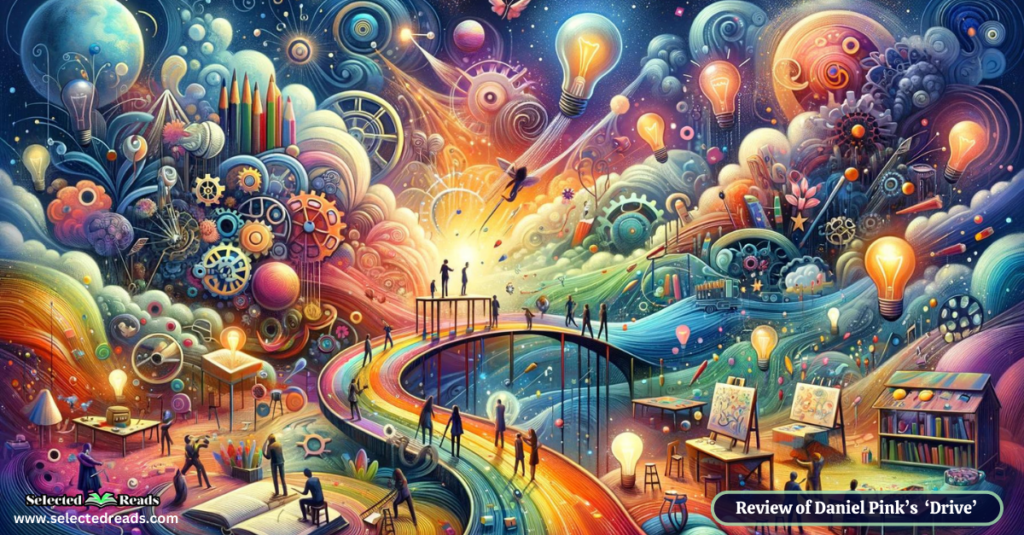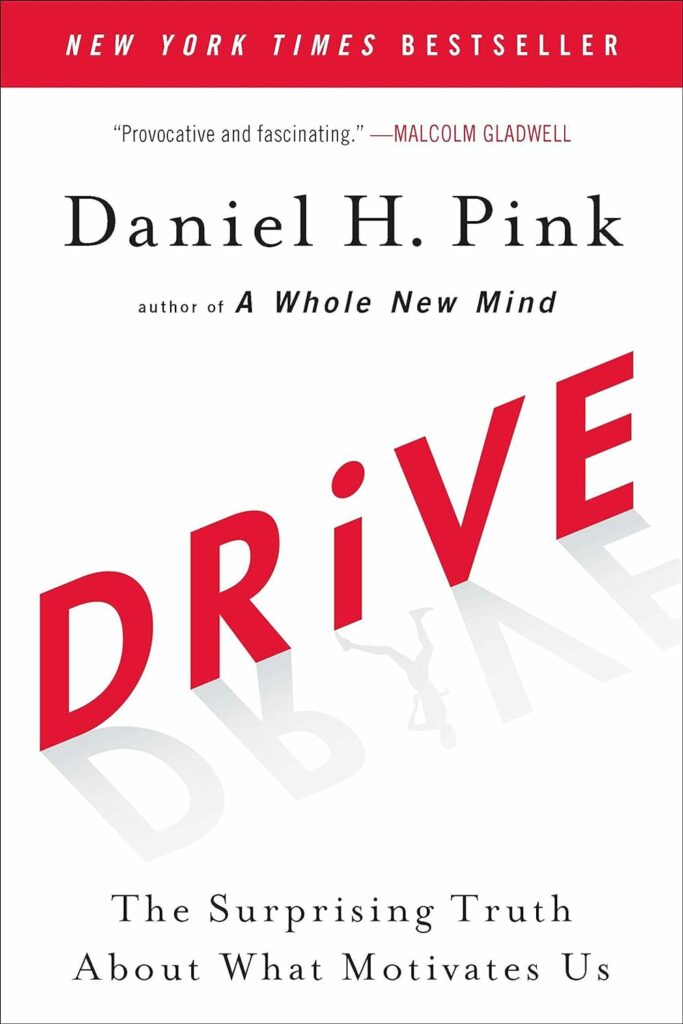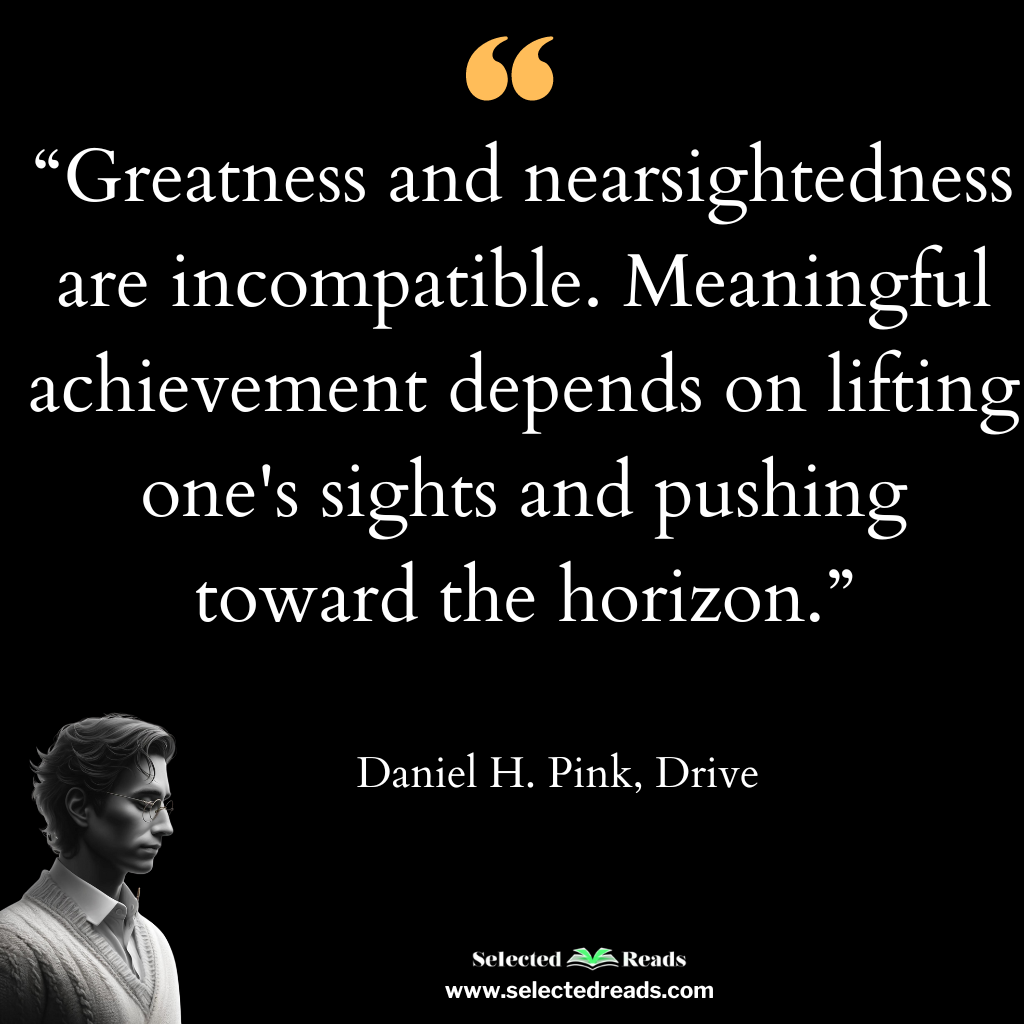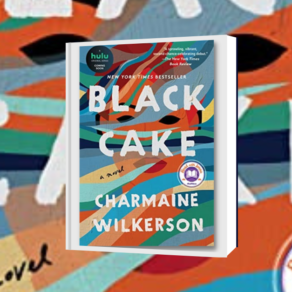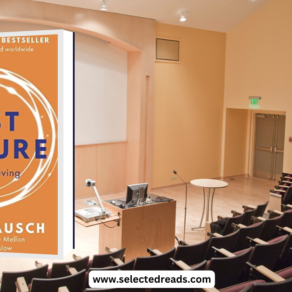As a fervent admirer of Daniel H. Pink’s insightful explorations into motivation and creativity, I’m thrilled to dive into another one of his compelling works, “Drive: The Surprising Truth About What Motivates Us.” Pink’s unique ability to dissect and reassemble our understanding of what pushes us forward has always resonated with me, sparking both reflection and action in my own life.
It’s this profound impact that inspires me to share a summary of “Drive” with you. My hope? To not only encapsulate the essence of Pink’s arguments for those who are familiar with his work but also to possibly ignite a curiosity in those who have yet to experience his transformative perspectives.
In this summary, I plan to delve into Pink’s trifecta of intrinsic motivators—autonomy, mastery, and purpose—and how they significantly outweigh the carrot-and-stick approach that’s been the status quo. And, because Pink’s own words carry a power that can stir a profound internal awakening, I’ll also share some standout quotes from the book.
These snippets serve as both a teaser and a testament to the richness of Pink’s narrative and his skill in compelling us to look inward at our own drives and desires. If you haven’t had the pleasure of reading “Drive” yet, consider this your nudge (perhaps even a gentle shove) towards doing so.
Related: Outliers Summary and Book Club Questions
Daniel Pink Drive Summary
“Drive: The Surprising Truth About What Motivates Us” by Daniel H. Pink delves into the dynamics of human motivation, challenging the traditional belief that external rewards, like money, are the most effective way to motivate individuals. Pink posits that there are deeper, more intrinsic motivators at play—autonomy, mastery, and purpose—that are key to driving human behavior and achieving satisfaction in work, school, and life.
The book begins by dissecting the conventional carrot-and-stick approach to motivation, highlighting its limitations and the situations in which it fails to yield the desired outcomes. Pink presents a compelling argument backed by four decades of scientific research, demonstrating how this outdated model is out of sync with what science shows about human motivation.
As Pink unravels the components of true motivation, he focuses on autonomy—the desire to be self-directed and have control over our own lives; mastery—the urge to improve skills and master our craft; and purpose—the need to be part of something larger than ourselves. These elements, Pink argues, are fundamental to achieving higher levels of performance and personal satisfaction.
Photo: Amazon
To bridge the gap between theory and practice, “Drive” offers actionable strategies for individuals and organizations to cultivate an environment that nurtures these intrinsic motivators. Through a series of real-world examples, Pink illustrates how shifting focus from external rewards to fostering autonomy, mastery, and purpose can lead to greater achievements and a more fulfilling life.
The narrative progresses to explore how individuals can apply these principles in their personal and professional lives. Pink provides practical tips for readers to seek out autonomy in their work, invest in their personal and professional development to achieve mastery, and align their efforts with a greater purpose.
Daniel Pink Drive Quotes
Here are some interesting quotes that stood out to me from Daniel Pink’s Drive:
1. “Greatness and nearsightedness are incompatible. Meaningful achievement depends on lifting one’s sights and pushing toward the horizon.”― Daniel H. Pink, Drive: The Surprising Truth About What Motivates Us
2. “Human beings have an innate inner drive to be autonomous, self-determined, and connected to one another. And when that drive is liberated, people achieve more and live richer lives.” ― Daniel H. Pink, Drive: The Surprising Truth About What Motivates Us
3. “We have three innate psychological needs—competence, autonomy, and relatedness. When those needs are satisfied, we’re motivated, productive, and happy.” ― Daniel H. Pink, Drive: The Surprising Truth About What Motivates Us
4. “The problem with making an extrinsic reward the only destination that matters is that some people will choose the quickest route there, even if it means taking the low road. Indeed, most of the scandals and misbehavior that have seemed endemic to modern life involve shortcuts.” ― Daniel Pink, Drive: The Surprising Truth About What Motivates Us
5. “children who are praised for “being smart” often believe that every encounter is a test of whether they really are. So to avoid looking dumb, they resist new challenges and choose the easiest path. By contrast, kids who understand that effort and hard work lead to mastery and growth are more willing to take on new, difficult tasks.” ― Daniel H. Pink, Drive: The Surprising Truth About What Motivates Us
6. “What you decide not to do is probably more important than what you decide to do.” ― Daniel H. Pink, Drive: The Surprising Truth About What Motivates Us
7. “Goals that people set for themselves and that are devoted to attaining mastery are usually healthy. But goals imposed by others–sales targets, quarterly returns, standardized test scores, and so on–can sometimes have dangerous side effects.” ― Daniel H. Pink, Drive: The Surprising Truth About What Motivates Us
8. “For artists, scientists, inventors, schoolchildren, and the rest of us, intrinsic motivation—the drive do something because it is interesting, challenging, and absorbing—is essential for high levels of creativity.” ― Daniel H. Pink, Drive: The Surprising Truth About What Motivates Us
9. “Intrinsic motivation is conducive to creativity; controlling extrinsic motivation is detrimental to creativity.” ― Daniel H. Pink, Drive: The Surprising Truth About What Motivates Us
Related:Talking to Strangers Summary and Quotes
Final thoughts
I hope you’ve found this short exploration into Daniel H. Pink’s “Drive: The Surprising Truth About What Motivates Us” both enlightening and thought-provoking. In delving into the intricacies of autonomy, mastery, and purpose, Pink offers us a blueprint for rethinking motivation—a concept so deeply embedded in our personal and professional lives. Through the quotes shared and the summary provided, my aim was to capture the essence of Pink’s argument and to present it in a way that resonates with both newcomers and long-time fans of his work.



